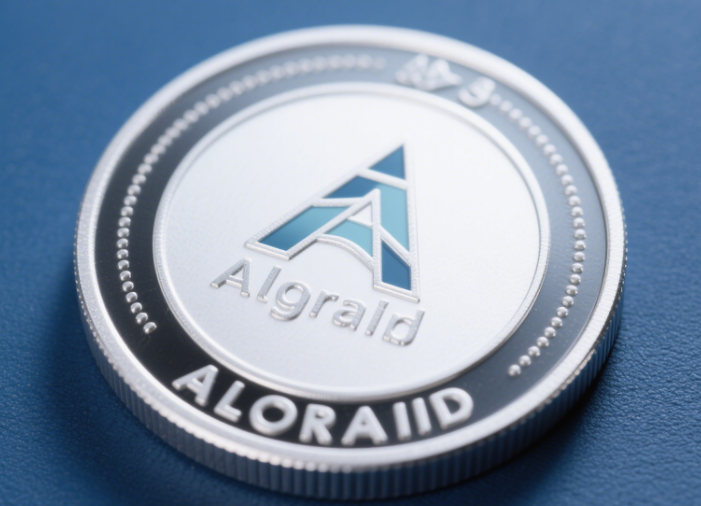In the rapidly evolving landscape of blockchain technology, Algorand Token (ALGO) has emerged as a trailblazer, offering a unique blend of scalability, security, and decentralization. Developed by MIT cryptographer Silvio Micali, Algorand aims to solve the “blockchain trilemma”—the challenge of balancing scalability, security, and decentralization—a feat that has eluded many blockchain projects. This article delves into the technical innovations, real-world applications, and market potential of Algorand Token, shedding light on why it’s poised to reshape industries worldwide.
The Genesis of Algorand: A Vision for Inclusive Finance
Founded in 2017, Algorand was born out of a desire to create a blockchain that could handle the transaction volumes of modern financial systems while maintaining the core principles of decentralization. Silvio Micali, a Turing Award laureate, designed Algorand’s consensus mechanism, Pure Proof of Stake (PPoS), to address the inefficiencies of traditional proof-of-work (PoW) and proof-of-stake (PoS) systems. Unlike PoW, which requires energy-intensive mining, or PoS, which can suffer from centralization risks, PPoS uses a verifiable random function (VRF) to select validators and leaders in a completely decentralized manner. This ensures that every ALGO holder has an equal chance to participate in securing the network, fostering true decentralization.
Technical Innovations Driving Algorand’s Success
1. Unmatched Scalability
Algorand’s blockchain can process up to 1,000 transactions per second (TPS) with final settlement in under five seconds, far surpassing networks like Bitcoin (7 TPS) and Ethereum (30 TPS). This scalability is achieved through a two-layer consensus process: the Byzantine Fault Tolerant (BFT) mechanism ensures security, while the PPoS layer enables rapid transaction confirmation. Such speed makes Algorand ideal for real-time applications like payments, decentralized finance (DeFi), and supply chain management.
2. Energy Efficiency and Sustainability
As environmental concerns about blockchain grow, Algorand stands out for its energy efficiency. By eliminating mining, PPoS consumes negligible energy compared to PoW, aligning with global sustainability goals. This eco-friendly approach has attracted institutions and governments seeking to adopt blockchain without compromising on carbon neutrality.
3. Decentralization and Security
Algorand’s consensus mechanism ensures that no single entity can dominate the network. Validators are chosen randomly, preventing collusion and centralization risks. The protocol also supports smart contracts and decentralized applications (dApps) through its Algorand Standard Assets (ASA) framework, enabling the creation of tokens for assets like securities, stablecoins, and non-fungible tokens (NFTs).

Real-World Applications of Algorand Token
1. Decentralized Finance (DeFi)
Algorand’s speed and low transaction costs ($0.001 per transaction) make it a prime candidate for DeFi platforms. Projects like AlgoFi and Tinyman have already launched on the network, offering services like lending, borrowing, and automated market making. With its focus on regulatory compliance, Algorand also appeals to institutions looking to develop compliant DeFi solutions, such as security token offerings (STOs).
2. Central Bank Digital Currencies (CBDCs)
Several governments have turned to Algorand to develop CBDCs. For example, the Eastern Caribbean Central Bank (ECCB) chose Algorand to power its digital currency, DCash, which aims to enhance financial inclusion across eight countries. Algorand’s ability to handle high transaction volumes while maintaining privacy and security makes it a trusted partner for national digital currency initiatives.
3. Supply Chain and Enterprise Solutions
Algorand’s blockchain is being used to track goods and ensure transparency in supply chains. Companies like IBM and Maersk have explored Algorand for logistics applications, leveraging its immutability to verify product origins and reduce fraud. Additionally, the network’s support for private blockchains (Algorand Blockchain Platform) allows enterprises to build customized solutions without sacrificing interoperability.
Algorand Token (ALGO): Market Dynamics and Future Outlook
As of [current date], ALGO ranks among the top 50 cryptocurrencies by market capitalization, with a circulating supply of over 6.5 billion tokens. The token’s utility extends beyond network participation; it is also used to pay transaction fees, participate in governance, and secure the network. With ongoing developments like Algorand 2.0 (now Algo 3.0), which introduced smart contract capabilities, and the upcoming Reachtree upgrade (aiming to boost scalability to 10,000 TPS), Algorand is continuously improving its infrastructure to stay ahead of competitors.
Investors are drawn to ALGO’s deflationary mechanics, as a portion of transaction fees is burned, reducing the total supply over time. Moreover, partnerships with organizations like the UNICEF Innovation Fund and Samsung highlight Algorand’s commitment to driving real-world impact, further solidifying its position as a leading blockchain platform.
Why Algorand Matters for the Future of Blockchain
Algorand’s success lies in its ability to bridge the gap between technical innovation and practical adoption. By solving the scalability trilemma, it opens doors for blockchain to be adopted in industries that require speed and reliability, from finance to healthcare. As more governments and enterprises embrace digital transformation, Algorand Token is well-positioned to become a key player in the global economy.
Stay ahead with Bitora’s comprehensive crypto insights.









Leave A Reply